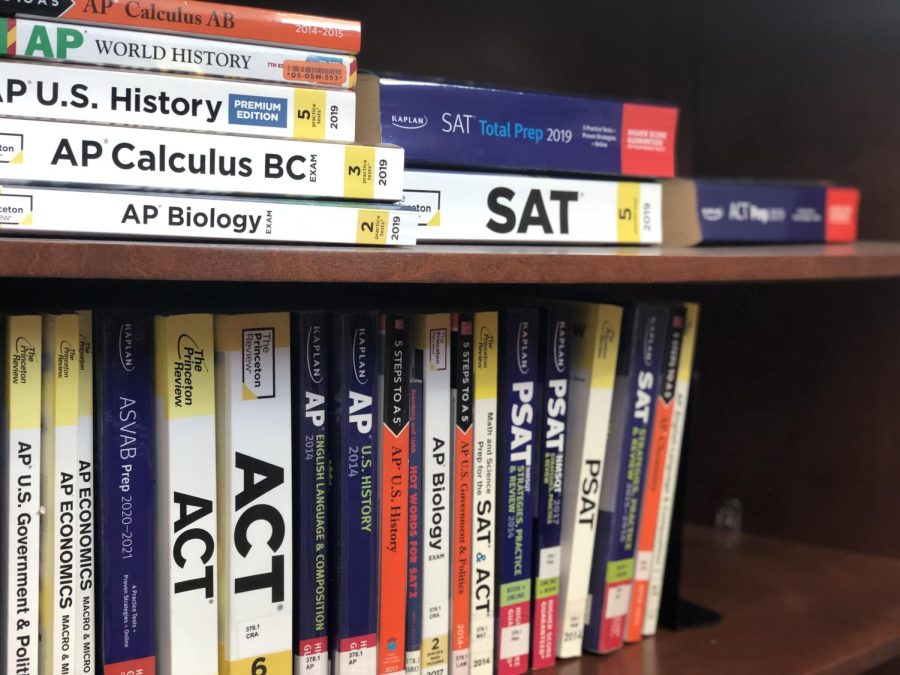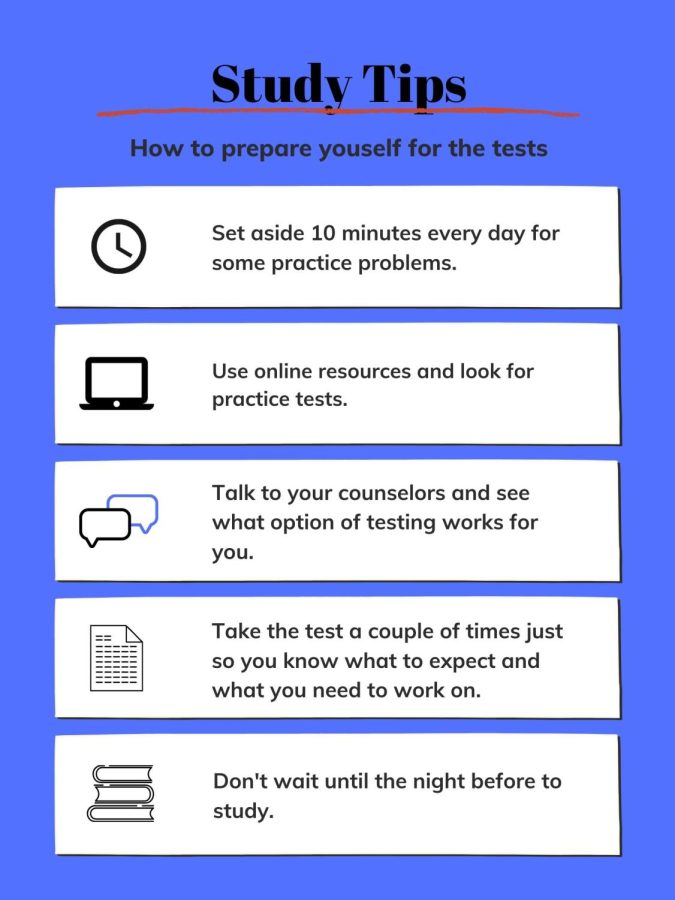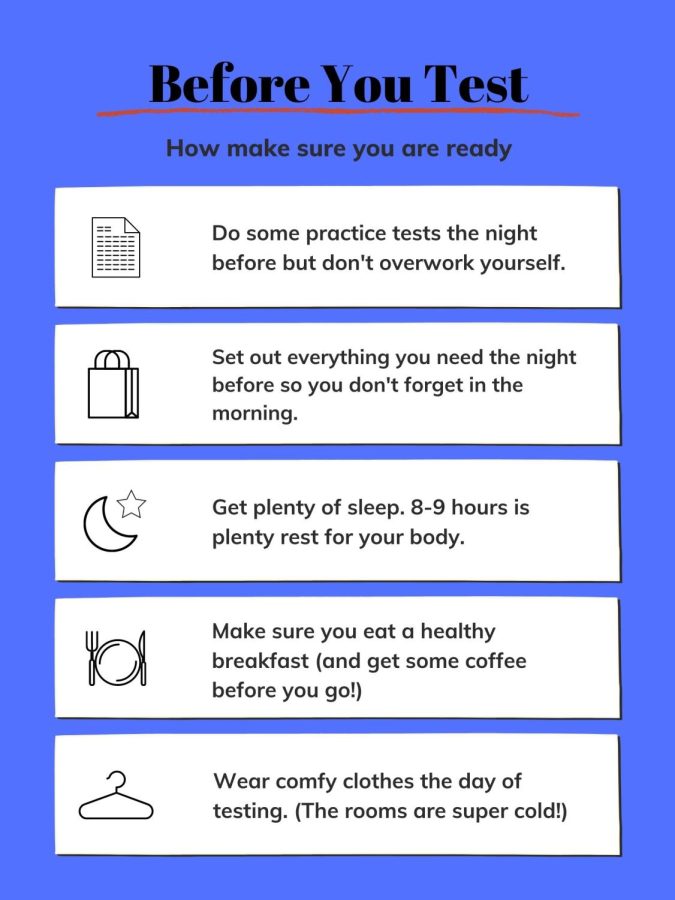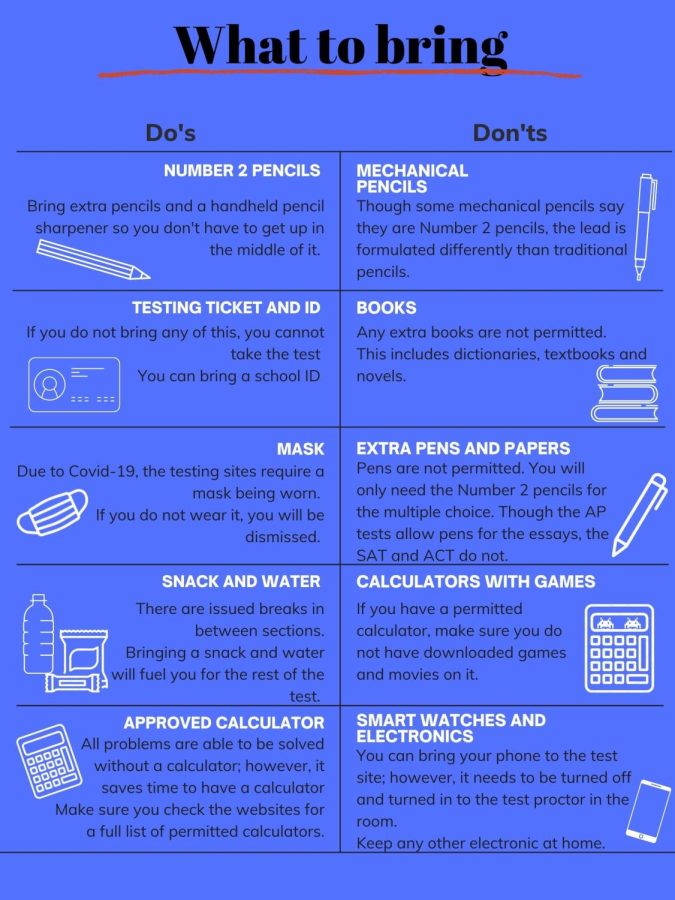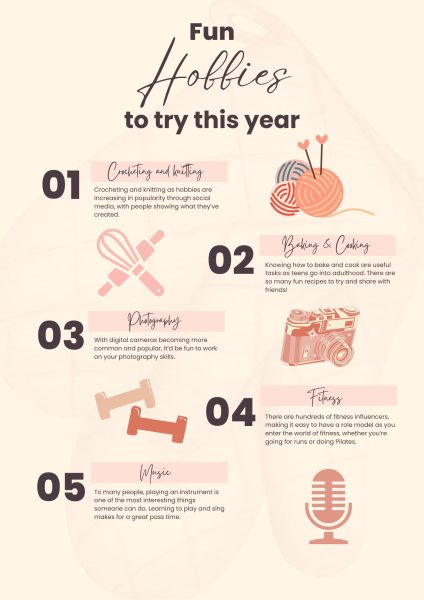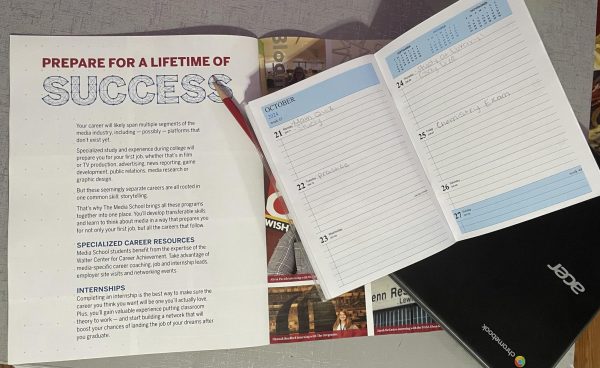To test or not to test?
Seniors decide between ACT, SAT, or ‘test optional’
While many students use their Saturday mornings to take the ACT and SAT, senior Kamori Knight decides to go test-optional and relieve that added stress.
The idea of test-optional rather than requiring standardized test scores first started in the U.S. with Bowdoin College in 1969. As early as 2015 test-optional became popular amongst colleges and universities. Approximately 1,785 U.S. colleges and universities will not require ACT and SAT scores from students applying in the fall 2022, according to the National Center for & Open Testing.
“Personally I’m not a good test taker,” Knight said. “With my recruiting process for volleyball I narrowed it down by choosing schools that I did not have to take [the tests].”
Knight says choosing colleges with the test-optional feature made it easier to decide where to advance her volleyball career. Knight explains that instead of putting her scores into her application for Kentucky Wesleyan University, she was able to write a short essay in its place. Other colleges like Kentucky Wesleyan require alternative information such as Advanced Placement (AP) test scores and essays, according to The New York Times.
Knight further explains that the admission tests are not a reflection of academic performance.
“If you have a high GPA and you’re just a bad standardized test taker, that shouldn’t determine if you get in [to college] or not,” Knight said. “You have the brains but putting it to a standardized test that you possibly won’t ever take again or need again, I feel like that isn’t fair.”
However, senior Anna Lane says that standardized tests show general comprehension.
“They show basic knowledge very well but it doesn’t fully capture everyone’s full knowledge,” Lane said. “There are so many other skills you need for life that aren’t captured in those scores.”
Lane says she took the SAT and ACT to help with her admission into college, while senior Isaac Minton says he took the ACT for merit scholarships.
“I thought it would help my chances with my scholarships,” Minton said. “I know that schools like IUS automatically consider [applicants] for merit scholarships based on what you tell them. I figured the more that I tell them, the more they’d give.”
Though the test was about $50, Minton was able to get more money out of his scores.
“It’s more of, ‘I may spend $50 on the ACT but I’ll get a couple thousand out of the school’, which I got out of RaiseMe– getting $1,000 for taking the ACT,” Minton said. “I think the $50 was well-invested.”
For college bound students like Lane, Knight and Minton, finding out what works out for them came naturally.
“[Do] whatever is best for you,” Knight said. “You might see your friends taking it but if that’s not best for you, then it’s fine.”
“I feel like my scores were okay and above average so I thought there was no harm in submitting them,” Lane said.
“I would go for a college that is test-optional but if you are going to a college that has to have a test, make sure you go hard on that test [and] make sure you do as best as you can– that’s your one shot,” Minton said. “If you have a test-optional [at] school, don’t stress out over it.”
For students planning to take the SAT and/or the ACT Lane suggests to use practice tests.
“Take the practice tests and don’t fall behind,” Lane said. “Take [the test] multiple times because your first time is always the hardest [and] you don’t know what to expect.”
While Minton sees the importance of taking standardized tests, he also devotes time to academics.
“Students should be focused more on their school work than actual test scores for the SAT and ACT,” Minton said. “Even though the scholarships and [colleges] consider the ACT as a reflection of who you are, your grades and how you do in school is a more accurate reflection of how you are as a student and a person than one test score could ever measure.”
At the end of the day, deciding what’s best is on the individual rather than what others say.
“In the real world, nothing ever works perfectly,” Minton said. “You’re never going to get a 100% on everything. There is always going to be something wrong but just because something is wrong doesn’t mean it’s going to be terrible. Just go in there believing that you can do good and you will.”

Hey everyone! My name is Samantha and this is my first year being a part of the Blotter staff as a reporter. I like being on the staff because...


